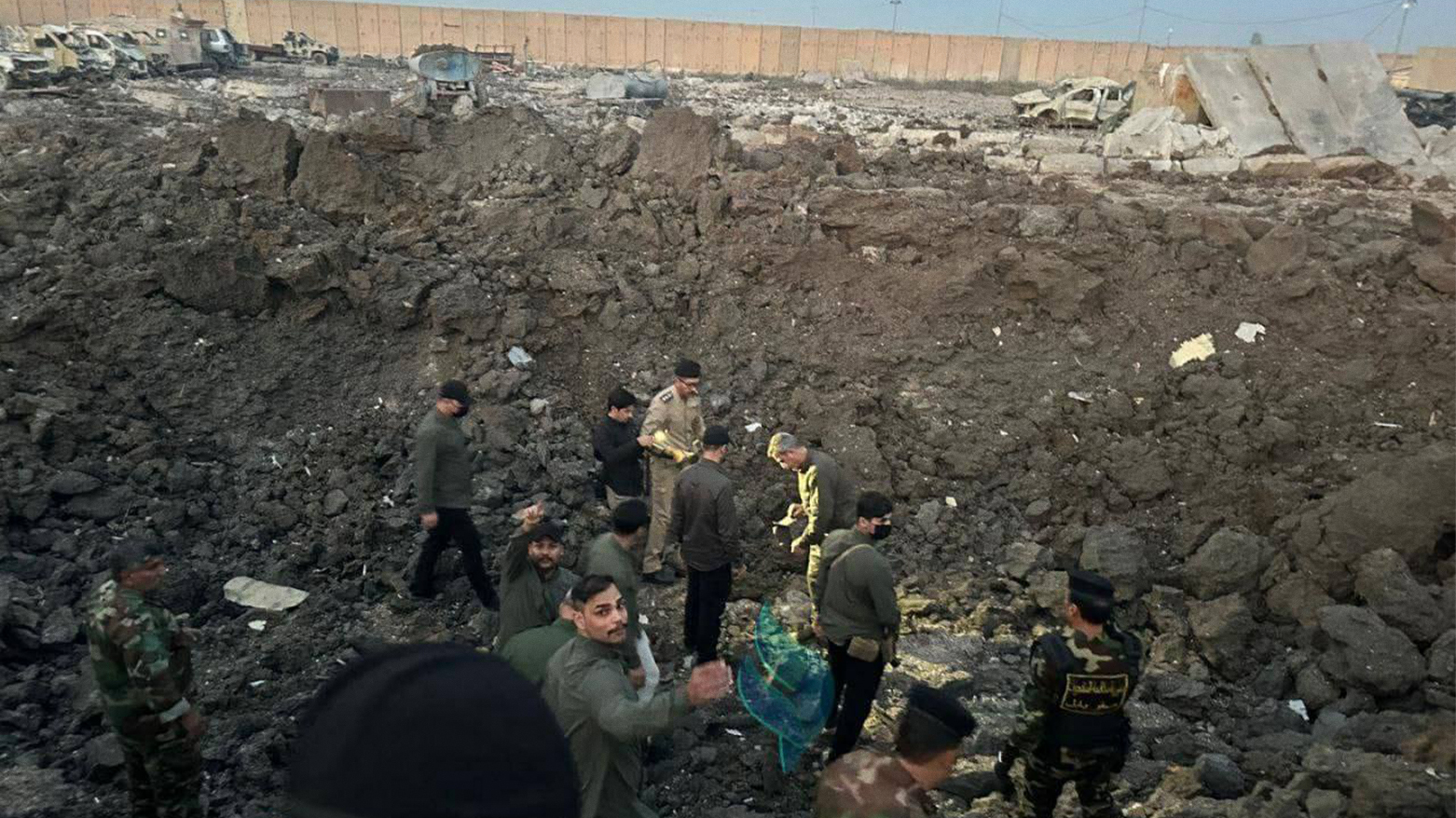Explosions rock Kalsu Military Base south of Baghdad

ERBIL (Kurdistan 24) - A series of explosions rocked the Kalsu military base, located 20 kilometers south of Baghdad, on Saturday at around 2:00 AM local time, leaving the area engulfed in chaos and uncertainty.
According to an Iraqi security source, the sound of the explosions was deafening, underscoring the intensity of the attack. The source revealed that Popular Mobilization Forces (Hashd al-Shaabi) had been utilizing the base to store weapons and ammunition, potentially indicating a strategic target for the assailants.
The head of the security committee in Babil governorate confirmed that five blasts reverberated through the area, caused by unknown aircraft, raising questions about the identity and motives of the perpetrators.
The attack reportedly resulted in casualties, although specific figures have yet to be confirmed. Despite the initial chaos, a leader within the Popular Mobilization Forces assured that the situation was "now under control," though the full extent of the damage and any ongoing threats remain unclear.
The Kalsu military base, once a hub of activity during the US military presence in Iraq, had been closed in 2011 following the withdrawal of American forces. However, the recent attack has reignited concerns about the region's stability and security.
Amid conflicting reports, the United States denied any involvement or activity in the area, adding another layer of complexity to the evolving situation. Eyewitnesses reported ongoing aerial activity over the Kalsu military base, suggesting a continued state of tension and potential for further incidents.
In response to the attack, the Popular Mobilization Forces announced that an investigation team had been dispatched to the scene to gather more information, promising to provide updates as they become available.
As tensions escalate and uncertainty looms over the Kalsu military base, authorities and residents alike remain on edge, awaiting further developments in this volatile situation.
These explosions come at a time of greater escalation in the wider region, as Israel and Iran have been engaged in direct clashes over the past few days.
In the meantime, Iraq's Prime Minister Mohammed Shia al-Sudani had arrived in Washington DC for extensive talks with the US President Joe Biden, and US governemnt officials.
Generally, as Kurdistan 24 understands, Sudani’s visit has gone well, including from a Kurdish perspective, but one wrinkle involves conflicting statements related to Iran’s recent assault on Israel.
U.S. officials have said that when Iran launched its massive attack on Saturday, some weapons targeting Israel were launched from Iraq, as well as from Syria and Yemen.
Read More: US: Some Weapons Fired from Iraq, as it Denounces Iran’s Attack on Israel
However, Sudani later denied that any weapons had been fired at Israel from Iraqi territory.
Asked about that discrepancy, Patel explained, “The vast majority of Iran’s attacks on Israel were launched from Iran,” adding, “We’ve urged the Iraqi Government to continue to take action against militants and weapons that are outside its control.”
The Kalsu military base, located south of Baghdad, holds strategic significance, particularly due to its history as a former US military installation. Its closure in 2011 marked a turning point in Iraq's security landscape, but recent events have brought renewed attention to the region's vulnerability to violence and instability.
The Popular Mobilization Forces, a paramilitary organization composed primarily of Shiite militias, have played a prominent role in Iraq's security apparatus, often clashing with external and internal actors amid the country's ongoing political and security challenges.
